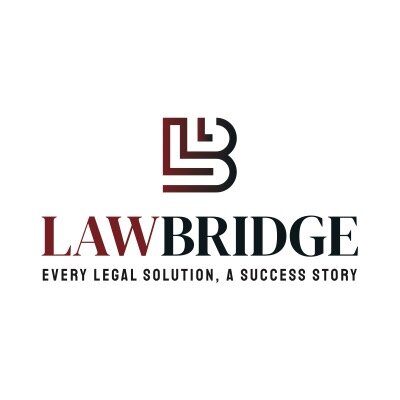Best Trusts Lawyers in Dubai
Share your needs with us, get contacted by law firms.
Free. Takes 2 min.
List of the best lawyers in Dubai, United Arab Emirates

About Trusts Law in Dubai, United Arab Emirates:
Trusts Law in Dubai, United Arab Emirates (UAE), is a relatively new legal framework. The concept of Trusts was formally introduced in the year 2020 as part of the amendments to the Dubai International Financial Centre's (DIFC) law. This legislation is designed to attract and retain high net worth individuals and families by offering legally protected asset and wealth management tools. Its main objective is to provide means to manage and control assets across generations with full compliance with international standards and regulations.
Why You May Need a Lawyer:
Establishing a Trust in Dubai requires careful planning and compliance with complicated legalities; thus, you may need a lawyer for the following situations. If you are planning to manage your estate and want to create a Trust, a lawyer with knowledge in this area can guide you through the legal procedures and advice on the best type of Trust suited for your needs. If you are involved in a dispute over a Trust as a Trustee or beneficiary, a Trusts lawyer can represent your interests and help recover or protect your rights. In matters relating to changes in Trust or termination, a lawyer can ensure that legal requirements are followed accordingly.
Local Laws Overview:
The Trusts Law in Dubai provides mechanisms for establishing trusts, maintaining them, and dealing with disputes arising out of Trusts. These are mainly overseen by the DIFC Law No.6 of 2020. Key points include a clear framework for creating and managing Trusts, comprehensive guidelines for Trustees including their powers, rights and obligations, and regulations pertaining to the termination, alteration, and variance of Trusts. Specifically, the law governs three types of Trusts: purpose trusts, charitable trusts, and non-charitable trusts.
Frequently Asked Questions:
1. What is a Trust?
A Trust in legal terms is an arrangement where a person (Trustee) is tasked with managing certain assets for the benefit of others (beneficiaries) under the terms set out in the Trust instrument.
2. Who can create a Trust in Dubai?
Both UAE and non-UAE residents who satisfy the legal age and capacity to contract can create a Trust in Dubai.
3. What is the duration of a Trust?
According to the DIFC Trusts Law, the maximum duration for a non-charitable Trust is 125 years. However, a Purpose or Charitable Trust may have perpetual existence with no fixed expiration date.
4. Can a Trust be modified or terminated?
Yes, a Trust may be modified or terminated under certain circumstances as per the terms mentioned in the Trust deed and in accordance with the provisions of the Trusts law.
5. What are the duties of a Trustee?
The Trustee is overwhelmingly responsible for the proper management of Trust assets, acting in the best interest of the beneficiaries, maintaining accurate records, and distributing assets to the beneficiaries as per the terms of the Trust.
Additional Resources:
The DIFC Law and official governmental websites are excellent resources for people seeking legal advice related to Trusts in Dubai. They contain comprehensive information about the local laws, regulations, and judicial interpretations. For specific legal advice or direct representation, local law firms specializing in Trusts and Estates should be contacted.
Next Steps:
If you need legal assistance related to Trusts in Dubai, your next step should be to consult with a lawyer with expertise in this field. They can provide you with personalized advice based on your circumstances. Additionally, it's worthwhile to spend time familiarizing yourself with the Trusts laws from trusted resources as part of your preparatory process.
Lawzana helps you find the best lawyers and law firms in Dubai through a curated and pre-screened list of qualified legal professionals. Our platform offers rankings and detailed profiles of attorneys and law firms, allowing you to compare based on practice areas, including Trusts, experience, and client feedback.
Each profile includes a description of the firm's areas of practice, client reviews, team members and partners, year of establishment, spoken languages, office locations, contact information, social media presence, and any published articles or resources. Most firms on our platform speak English and are experienced in both local and international legal matters.
Get a quote from top-rated law firms in Dubai, United Arab Emirates — quickly, securely, and without unnecessary hassle.
Disclaimer:
The information provided on this page is for general informational purposes only and does not constitute legal advice. While we strive to ensure the accuracy and relevance of the content, legal information may change over time, and interpretations of the law can vary. You should always consult with a qualified legal professional for advice specific to your situation.
We disclaim all liability for actions taken or not taken based on the content of this page. If you believe any information is incorrect or outdated, please contact us, and we will review and update it where appropriate.
















